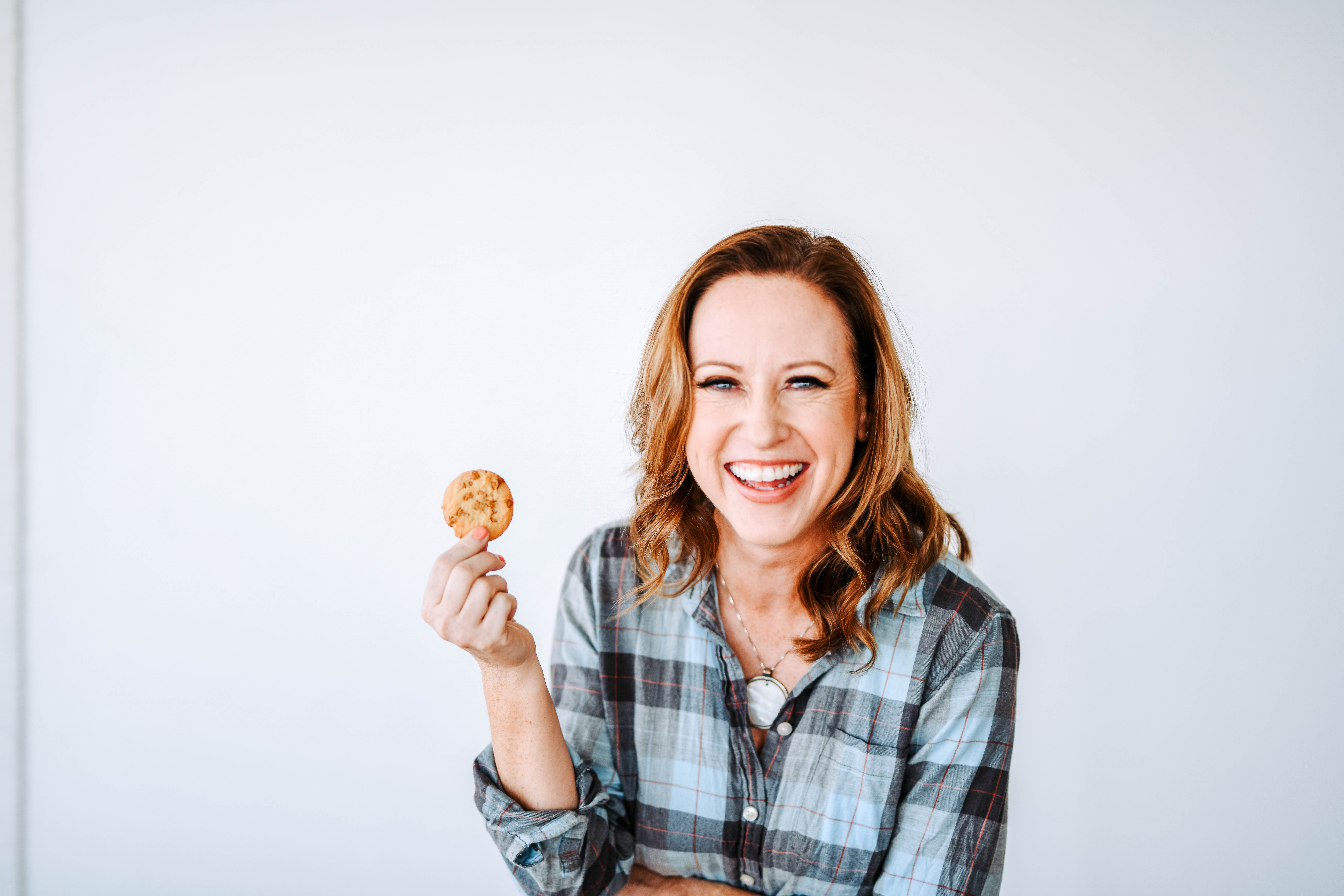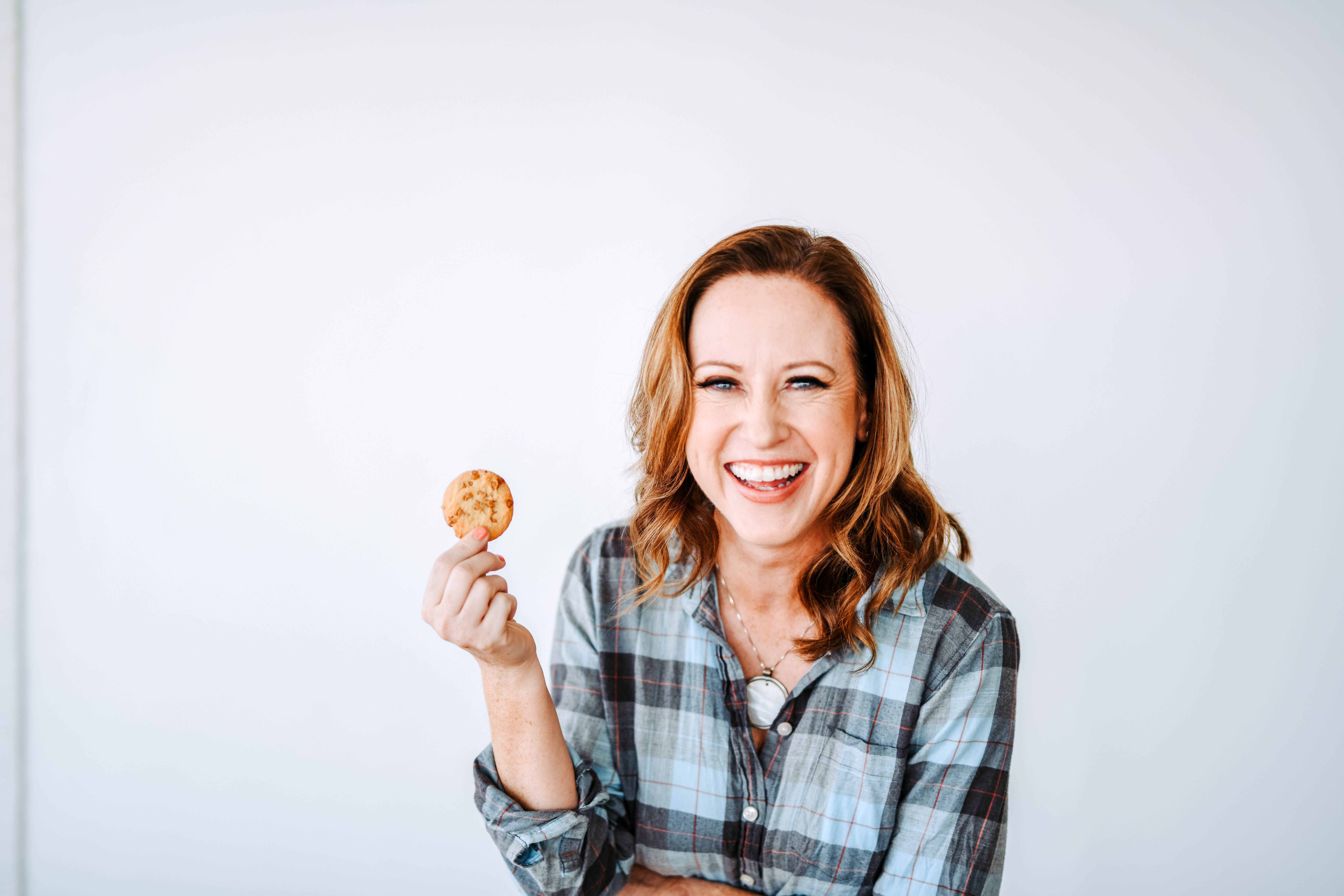
Anyone else feel like the bag of chips is screaming at them from the pantry at around 9pm every night? It’s like clockwork, 8pm we stand outside and cheer for our front-line workers (thanks to all of you!) and at 9pm we start the should I/shouldn’t I battle with the bag of chips. If this sounds familiar, don’t worry we have all been there. Here are three questions to ask yourself to help quiet that chatter and cut down on the late-night snacks:
Am I hungry?
Note that I said AM I hungry, not SHOULD I be hungry. Don’t worry, we will get to emotional eating but we first have to check in with your eating behavior throughout the day. As we learned in The Truth About Cravings, most cravings are a sign of under eating. Yes, chocolate will always taste good and chips will always be crunchily delicious, but that mental consumption with food is usually a sign that you didn’t eat enough during the day.
I am seeing even more of this in quarantine because our schedules are off and our time is either at a premium or we have way too much of it. Either way, there is a lot of skipping meals, or just grazing throughout the day. Yes, we may have eaten plenty at dinner but if we follow the day back, we usually find that we either intentionally or unintentionally didn’t eat enough.
If this is the case, make sure that tomorrow you prioritize your meals, so you aren’t battling the cravings at night.
Did I eat enough protein?
Another source of cravings is a day that is too low in protein. If you look at hunger as a problem to be solved, protein solves that problem. So, you can have the most beautiful day full of fruits and vegetables and the wholest of the grains, but they will most likely not make you feel full. To be clear, this protein doesn’t need to be from an animal. You can get more than enough from plant-based options like beans, lentils, nuts, seeds, hemp, soy, etc.
If this is the case, make sure tomorrow you have a source of protein at every meal and snack.
Am I emotionally eating?
First of all, it is perfectly fine to eat something just because it tastes good or makes you happy. If you are at peace with this or it just happens once in a while, no need to read any further. Or if you are managing clinical anxiety or binge eating, there are other places that are best to focus first.
This only becomes a problem if it is cyclical (every night or your only solution to dealing with emotions) or if it is incongruent with your longer-term goals.
If you have established that you are not physically hungry and ate balanced throughout the day, then it might be an emotional craving. Let’s really dig down into what emotional cravings are – they are feeling discomfort. Perhaps it is boredom or anxiety or entitlement, but really at its core it is discomfort. If you feel that you are eating something just because you love it so much, imagine what you would feel if you didn’t have it. Yup, there it is. That’s the discomfort you are avoiding.
In this situation, food can temporarily alleviate the discomfort! It makes you feel good, it is something to do, it tastes good, etc. However, it doesn’t really solve the problem, it just kicks the can down the road. Meaning you are going to feel that discomfort at some point, it’s just been temporarily masked. To be honest, it usually picks up intensity the more you push it off and turns into feelings like shame, frustration, etc. Alternatively, when you sit with the discomfort right then, it tends to pass pretty quickly and be way less intense than you originally thought.
So, when you opt for the chips to feel better you are simply saying I don’t want to feel uncomfortable now, I would rather feel uncomfortable later. When you move through that feeling you can check it off of your to-do list and not have to worry about it.
Again, this mostly applies to cyclical or habitual eating, not a one-off or celebratory event. There really isn’t anything wrong with that (if you don’t believe me, check out the beautiful chocolate/peanut butter cookie I baked up the other night on Instagram).
If it is more of a cycle, try labeling the feeling as discomfort and see if that diffuses the intensity. Remind yourself that you can buffer the discomfort now and save it for later or just move through it and be done with it.

